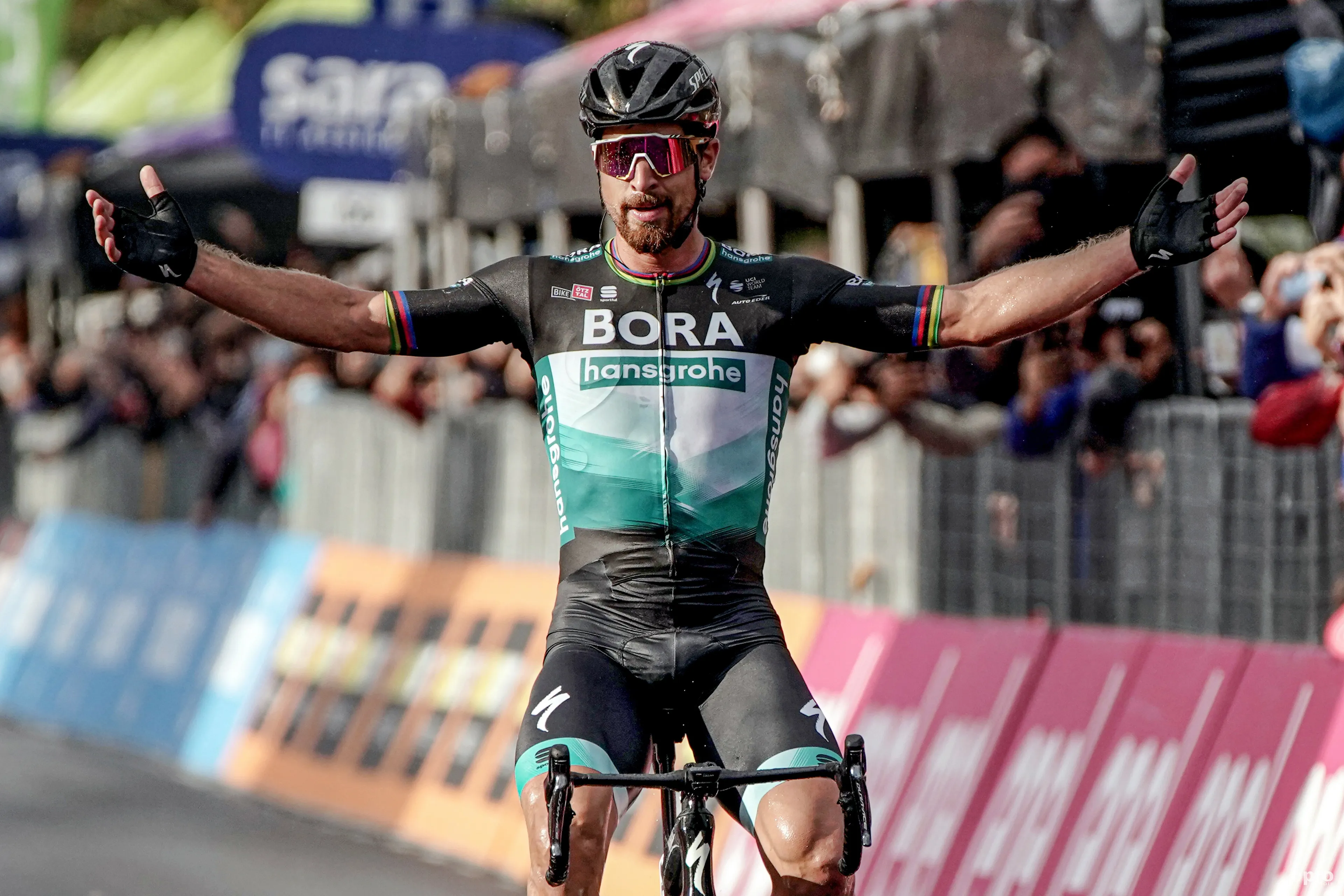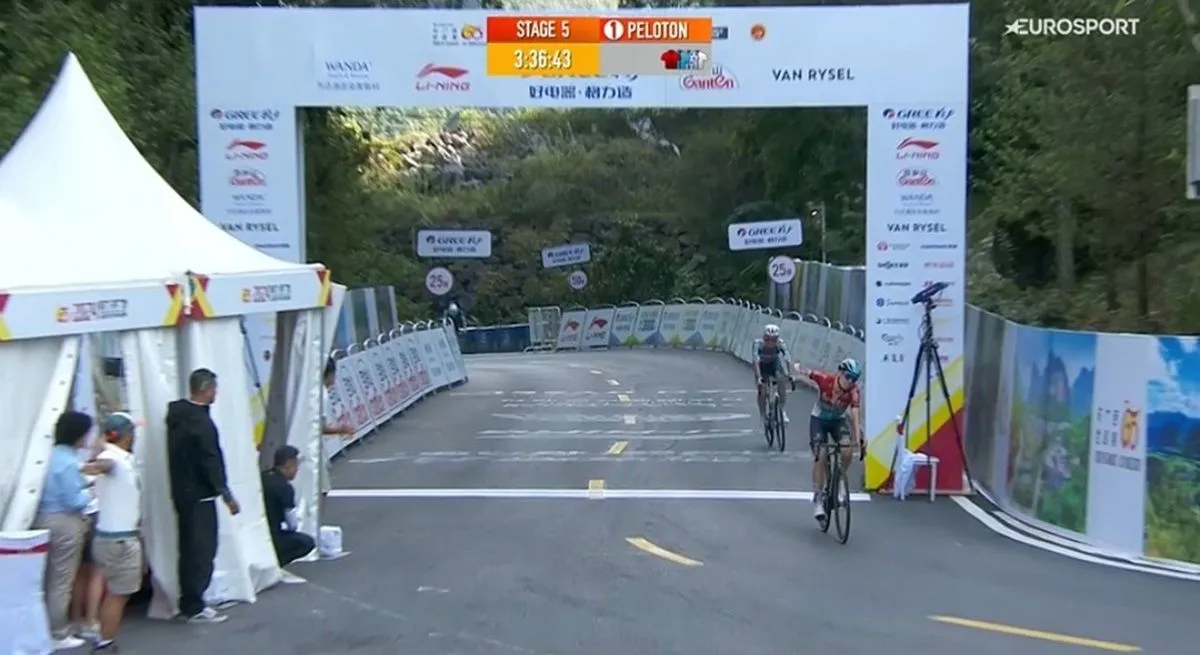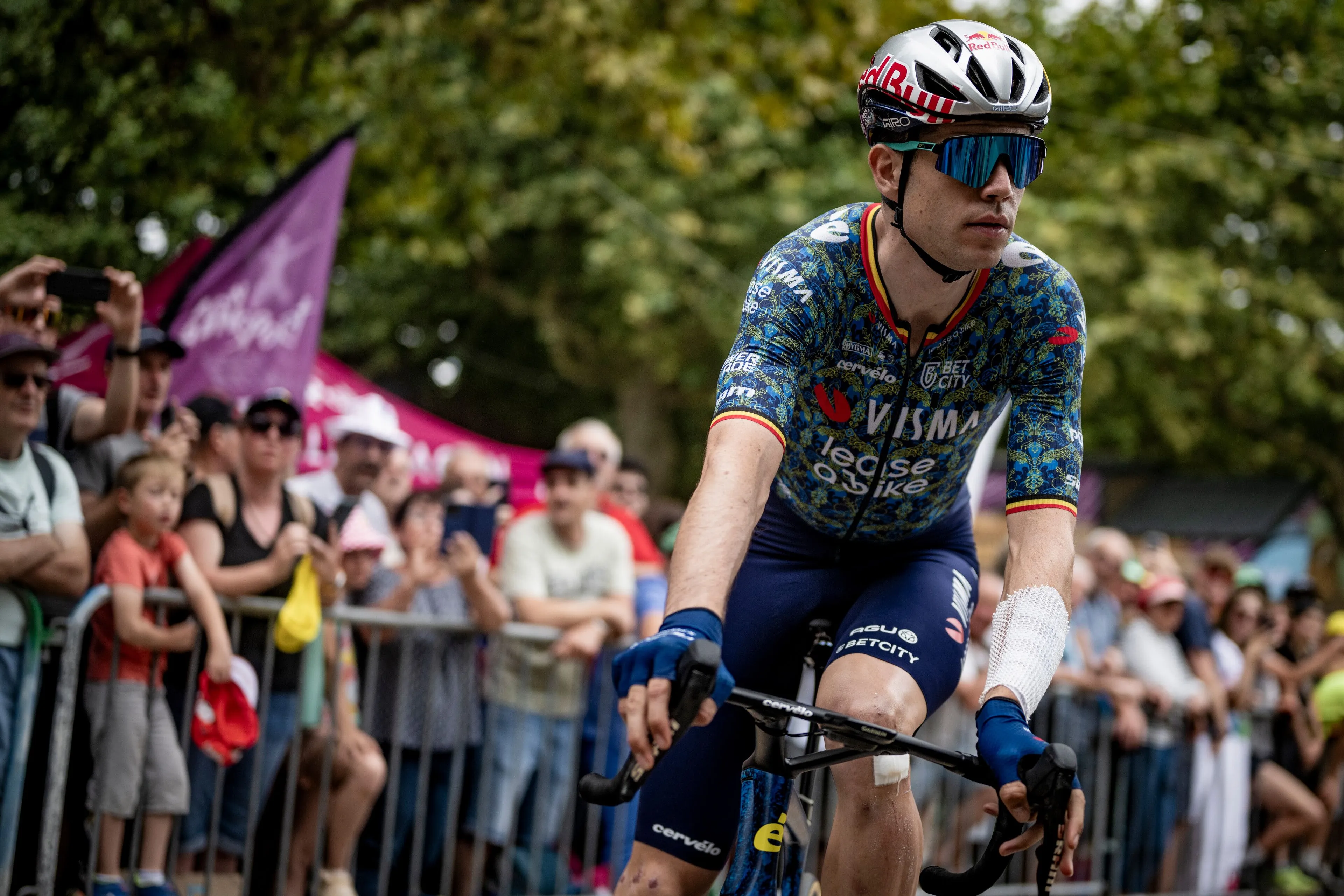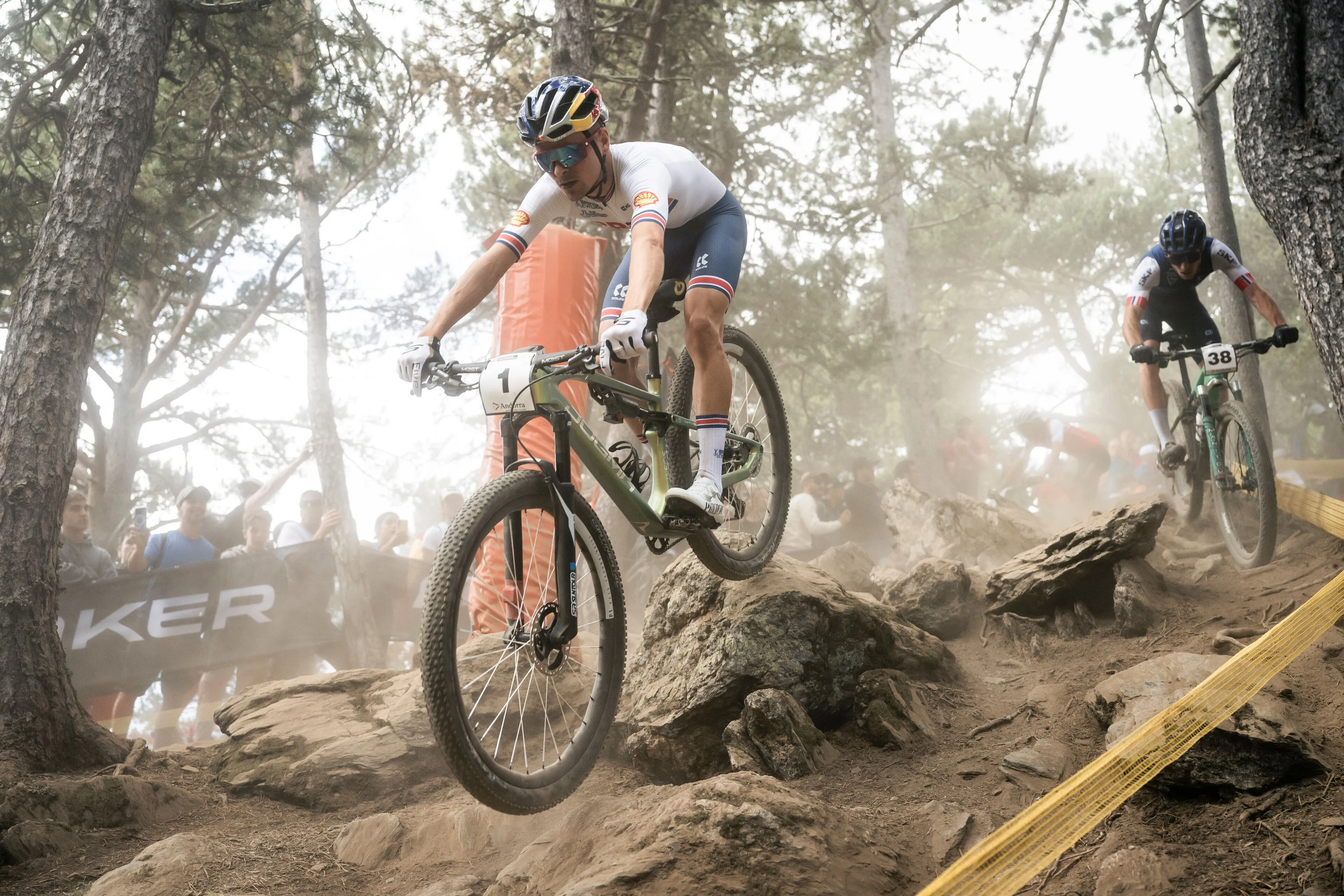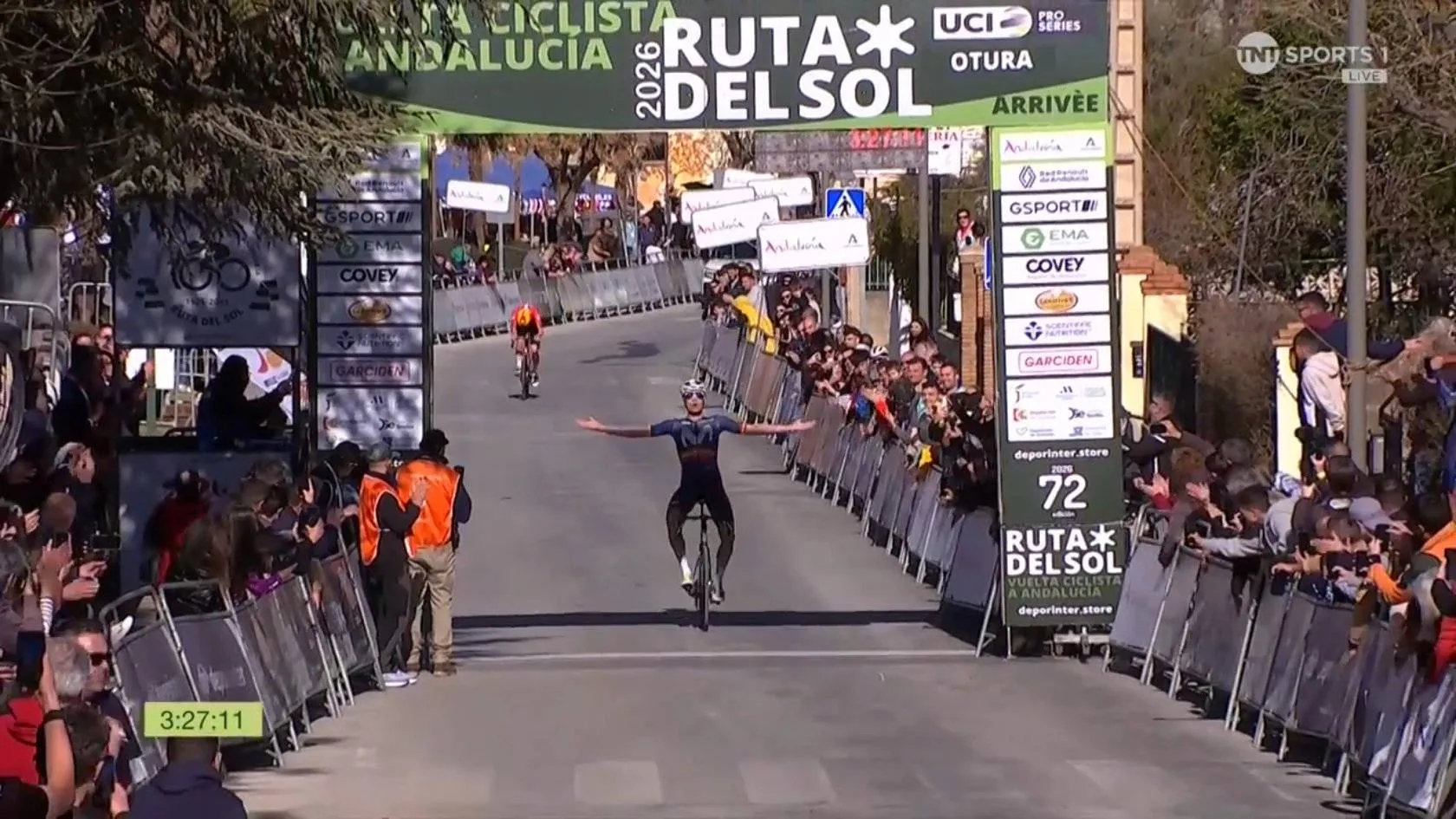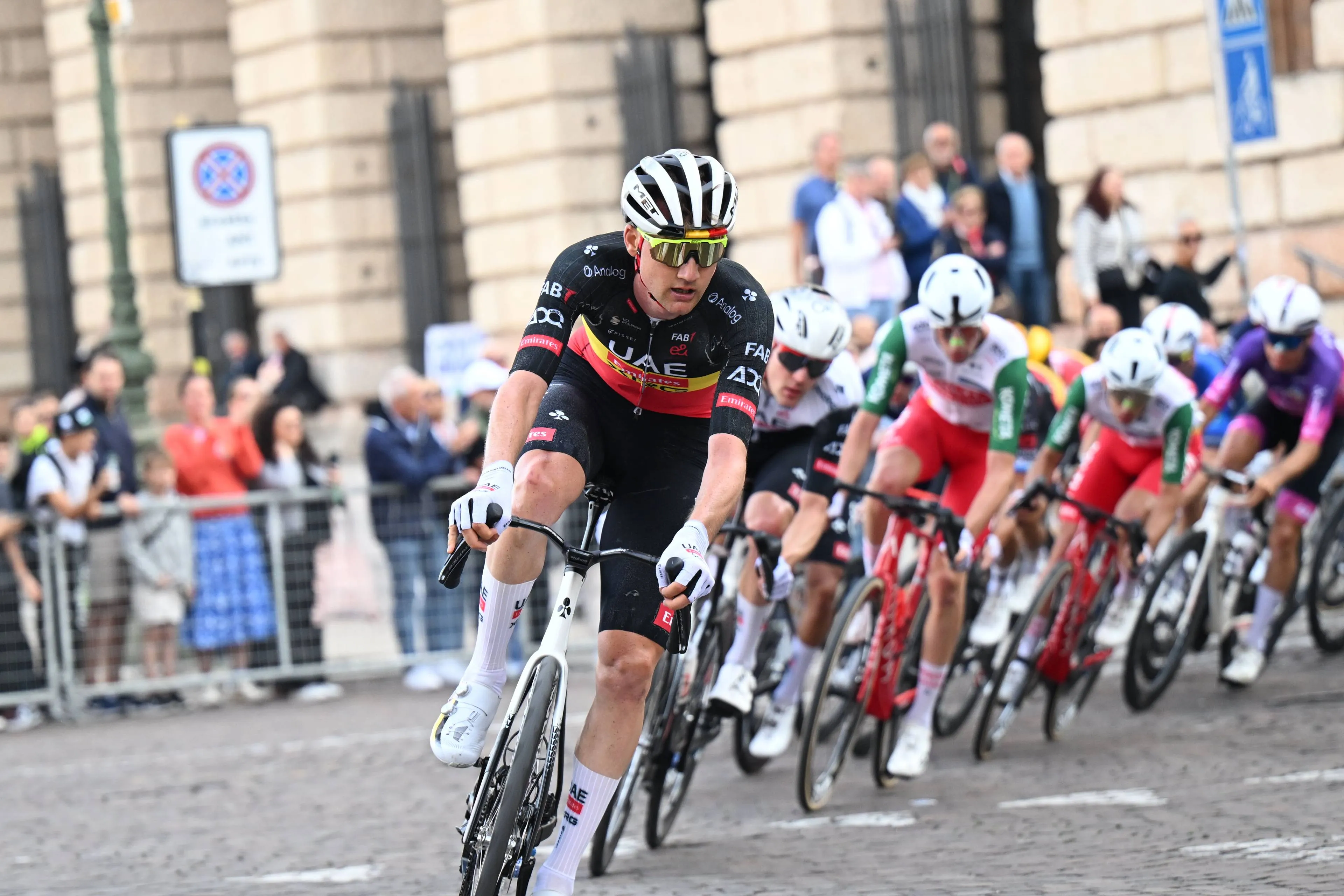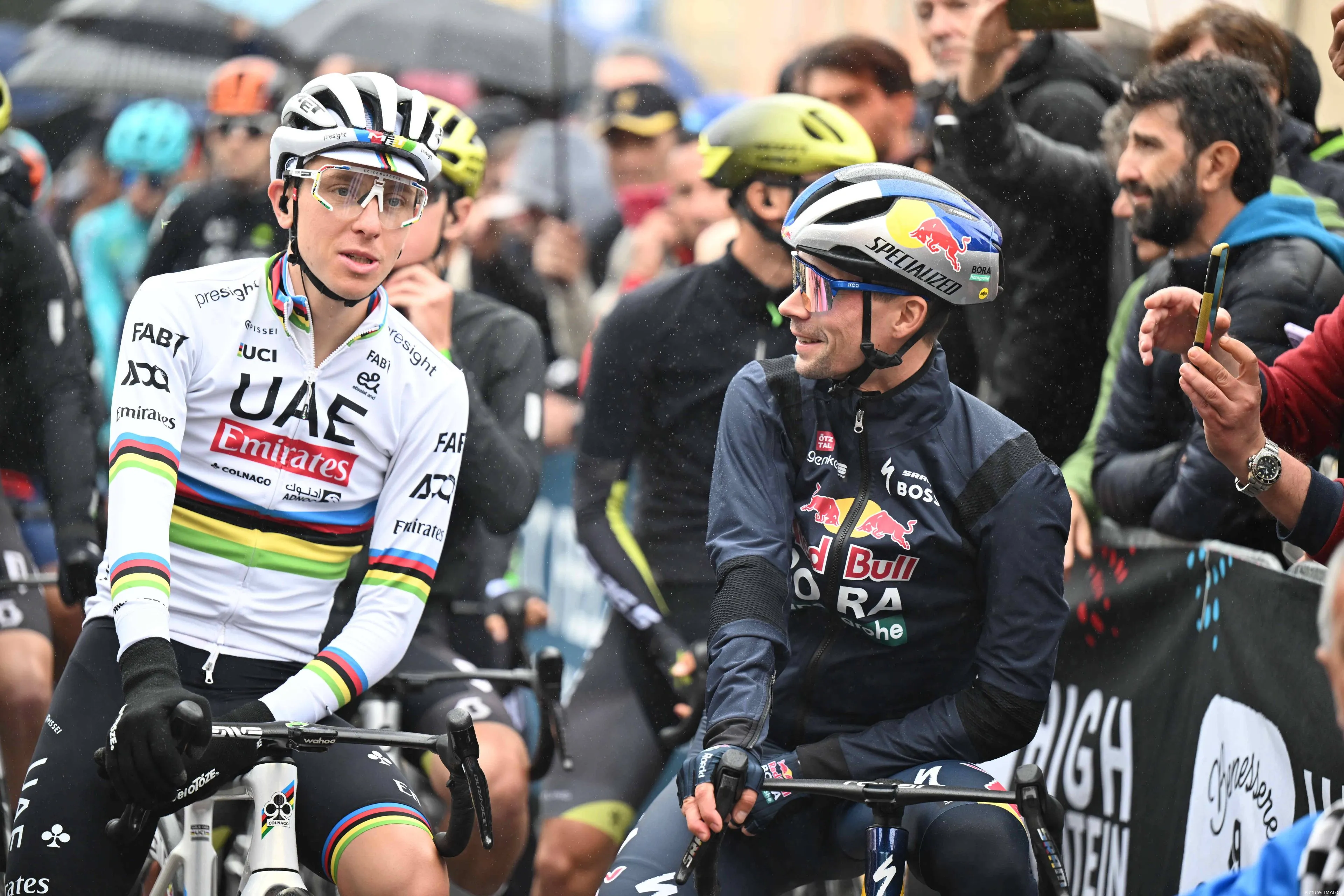
Slovenia’s rise to the top of professional cycling has been
one of the key stories in the world of professional cycling over the past 5
years. In a country with a population of just over two million, Slovenia now
boasts two of the greatest riders of their generation: Tadej Pogacar and Primoz
Roglic.
Their accomplishments have propelled Slovenia into the
spotlight as the world’s number one cycling nation, a title solidified by
Pogacar’s victory at the 2024 UCI World Championships in Zurich last month. It
was a victory that crowned an already historic season for Pogacar, and placed
Slovenia firmly at the pinnacle of the sport.
Read also
Pogacar’s historic 2024
The 2024 season has been one for the record books, not just
for Pogacar but for cycling itself. His victory in the World Championships road
race, securing the coveted rainbow jersey, is just the latest in a string of
monumental achievements this year. Pogacar’s 2024 season is being hailed as one
of the greatest in cycling history, comparable only to the legendary feats of
Eddy Merckx and Stephen Roche. Like them, Pogacar won the Giro d'Italia, the
Tour de France, and the World Championships in the same year, the triple crown.
Pogacar’s palmarès for 2024 is the stuff of cycling legend:
two Grand Tour victories (the Giro d'Italia and the Tour de France), six stage
wins in both races, victories in two monuments (Liège-Bastogne-Liège and Il
Lombardia), a win at Strade Bianche, and now the World Championships title.
It’s a season that will be remembered as perhaps the most dominant single-year
performance in cycling history.

Tadej Pogacar has been unstoppable in 2024
While Pogacar’s list of accomplishments is already
unparalleled, there is one Grand Tour missing from his collection in 2024: the
Vuelta a España. However, the man who won that race is none other than guess
who, his compatriot Primoz Roglic. Roglic, now 34 years old and riding for Red
Bull Bora-Hansgrohe, claimed his fourth Vuelta title in September. It was
Roglic’s first Grand Tour win since his switch to the new team and further
cemented his status as a legend in Slovenian cycling.
Between them, Pogacar and Roglic have won a combined nine
Grand Tours, an incredible feat for any nation, let alone a small country like
Slovenia. But how did this meteoric rise come about? What has allowed Slovenia
to produce not just one but two of the greatest cyclists of this generation?
Read also
The origins of Slovenia’s climb
To understand Slovenia’s monumental rise, it’s important to
first consider the country’s sporting culture. Slovenia has always been a
nation that values physical activity and outdoor pursuits, shaped in part by
its geographical landscape. Nestled between the Alps and the Adriatic Sea,
Slovenia offers diverse terrain, from mountainous regions perfect for skiing
and hiking to rolling hills and flatlands ideal for cycling.
Historically, Slovenia has excelled in winter sports,
producing world-class athletes in alpine skiing and ski jumping. Roglic’s
background in ski jumping has been widely discussed as one of the factors that
helped him become such a powerful cyclist, particularly in time trials and
mountain stages.
Pogacar, on the other hand, represents a new generation of
Slovenian athletes who have grown up in a country where cycling is becoming
increasingly popular. His hometown of Komenda even now hosts the "Pogi
Cup," a local race for young cyclists aged 8 to 19. Grassroots development
systems such as this will be crucial in continuing Slovenia’s cycling success,
helping to identify and nurture young talent from an early age.
Read also
Slovenian cyclist Luka Mezgec highlighted this shift in a
recent interview with Wieler Revue. “It’s the perfect showcase for
Slovenian cycling. I believe our country will continue to be a cycling
powerhouse in the future. Slovenia is generally a healthy country where
exercise is ingrained from a young age. At my primary school, everyone participated
in at least one sport. It’s part of our culture, with Pogacar and Roglic being
our prime examples.”
Slovenia’s cycling revolution isn’t just about the athletes,
it’s about a culture that embraces physical activity, a geography that lends
itself to endurance sports, and a grassroots system that supports the
development of young riders. But while the infrastructure has helped create the
conditions for success, it’s the physiological gifts and mental toughness of
Pogacar and Roglic that have truly elevated Slovenian cycling to the next
level.
Superhuman athletes
One of the most commonly discussed aspects of Pogacar and
Roglic’s success is their remarkable physiological capacity. Tadej Pogacar’s
VO2 max is reported to be 89.4, according to Rouleur. This places him
among the highest VO2 max figures ever recorded, demonstrating his incredible
endurance and efficiency. Similarly, Roglic’s VO2 max is reportedly above 80,
an elite level that makes him one of the strongest riders in the peloton.
Read also
While VO2 max alone doesn’t determine success in cycling,
it’s a strong indicator of the physiological advantages these riders have over
their competitors. In combination with their tactical intelligence and mental
fortitude, it’s no surprise that Pogacar and Roglic have dominated the sport in
recent years.
Roglic’s mental toughness, in particular, has been tested on
more than one occasion. The most famous example, of course, is the 2020 Tour de
France, where Roglic was on the verge of becoming Slovenia’s first Tour de
France winner, only to be dramatically overtaken by Pogacar on the final
competitive day. That moment, where Pogacar’s time-trial brilliance earned him
the yellow jersey, is one of the most iconic in cycling history, but it also
highlighted the intense rivalry between the two Slovenian superstars.
Is Primoz Roglic still Slovenia’s cycling king?
Despite Pogacar’s incredible achievements, Roglic remains
the most beloved cyclist in Slovenia. As Sporza reported ahead of the
2024 World Championships, many fans in Slovenia still hold Roglic in higher
esteem than Pogacar, largely due to the dramatic events of the 2020 Tour.
Roglic was seen as the nation’s first legitimate Grand Tour contender, and for a
small section of fans, the heartbreak of losing to Pogacar in such dramatic
fashion has left a lasting impact.
According to Marjeta Pogacar, Tadej’s mother, that rivalry
has led to some negative reactions from a small portion of Slovenian fans.
“After the 2020 Tour, Tadej received a lot of negative reactions. Personal
messages and such. He had supposedly betrayed Roglic,” she told Sporza.
“We are talking about a minority here, really, but it still affects him. In
Slovenia, there is a kind of shadow hanging over Tadej. As if he had been
beaten to the checkout.”

Tadej Pogacar and Primoz Roglic in late 2024. @Imago
However, it’s important to emphasize that these negative
reactions come from only a tiny fraction of the population. For the vast
majority of Slovenians, both Pogacar and Roglic are national heroes, and their
accomplishments are a source of immense pride. The rivalry between the two may
have created some tension, but it has also pushed them to new heights and
contributed to the overall success of Slovenian cycling.
The 2020 Tour de France marked a turning point for Slovenian
cycling, not just because of Pogacar’s dramatic victory but also because of
what it represented for the nation as a whole. It was the first time that two
Slovenian riders had competed for the sport’s most prestigious prize, and it
was a moment that captured the imagination of the entire country.
Read also
For Roglic, the defeat was crushing, but his ability to
bounce back from that disappointment speaks to his resilience and character.
Since that loss, Roglic has gone on to win multiple Grand Tours, including his
fourth Vuelta title in 2024. His comeback has only added to his legend, making
him a beloved figure not just in Slovenia but around the world.
Pogacar, meanwhile, used that 2020 victory as a springboard
for his own dominance. In the years since, he has added two more Tour de France
titles, the Giro, multiple monuments, and now the World Championship to his
résumé. His rivalry with Roglic may have cooled in recent years due to Roglic’s
injuries, but the impact of their 2020 Tour duel continues to reverberate
through the sport.
Looking ahead, Slovenia’s future in cycling looks incredibly
bright. With a strong grassroots system, a culture that embraces sport, and two
of the greatest riders of all time, Slovenia is well-positioned to remain a
cycling powerhouse for years to come. The success of Pogacar and Roglic has
inspired a new generation of cyclists, and grassroots events like the Pogi Cup
are ensuring that the next wave of Slovenian talent is already on the way.
Read also
As Luka Mezgec noted, the change in attitude toward cyclists
in Slovenia has been profound. “When I first started cycling, drivers would
flip me off, but now they give me a thumbs up,” he laughed. This cultural shift
reflects the broader transformation of Slovenia into a cycling nation, where
the sport is now celebrated and respected.
Pogacar and Roglic may be the faces of this transformation,
but they are not the only factors driving Slovenia’s success. The country’s
geography, culture, and investment in youth development have all played a
crucial role in shaping its rise to the top. With Pogacar and Roglic leading
the way, Slovenia has firmly established itself as cycling’s number one nation,
and its dominance shows no signs of slowing down.
claps 7visitors 7
Just in
Popular news
Latest comments
- Minor flaws.... thats like suggesting Genghis Khan was a bit aggressive with other countriesslappers6619-02-2026
- Then you carry on if that's what makes you happyslappers6619-02-2026
- Fabio cannot catch a break.mij19-02-2026
- OK, today is the "air conditioner"... yesterday was a cramp... on saturday a bee will sting him in his tongue... his tongue will swell up and mustafa gets no oxygen. Because of his swollen tongue, Remco won't be able to give us a new excuse. Remco and the spanish rat Ayuso should be on the same team. They both have a ton of excuses and both of them are liars. Ad acta.Mou-Cro-HR19-02-2026
- Florian Lipowitz is secretly happy
 Rafionain-Glas19-02-2026
Rafionain-Glas19-02-2026 - The crucial thing to remember is that Remco was broken by the pace of Gall and Tiberi, not Del Toro's. Remco's excessive antics are because he doesn't want anyone to think that he's 'genuinely' struggling. You can always say 'he got cramps' because 'his preparation didn't go to plan', but the thing is that there is a limit to the number of excuses and exceptions that there can be. Eventually everyone just accepts that he's reached his ceiling on the climbs.
 Rafionain-Glas19-02-2026
Rafionain-Glas19-02-2026 - Bahraini suspicious..Santiago19-02-2026
- The problem is, a British 'boss' opening the gates, when the native workers not wanting them!
 leedorney19-02-2026
leedorney19-02-2026 - Who is overrating him on climbs? Everyone knows since ages it’s his weakness and needed years of work. Question us if he can do enough about it. For sure he won’t be able to improve his TT enough to compensate.Mistermaumau19-02-2026
- What do you call only seeing someone’s positives?Mistermaumau19-02-2026
Loading
4 Comments
